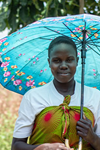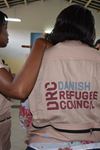
Uganda
DRC has been present in Uganda since 1997, implementing projects across the country with a current focus on the refugee situation in the West Nile and southwest regions as well as a focus on non-refugee humanitarian and development needs in the northern and Karamoja regions of the country.
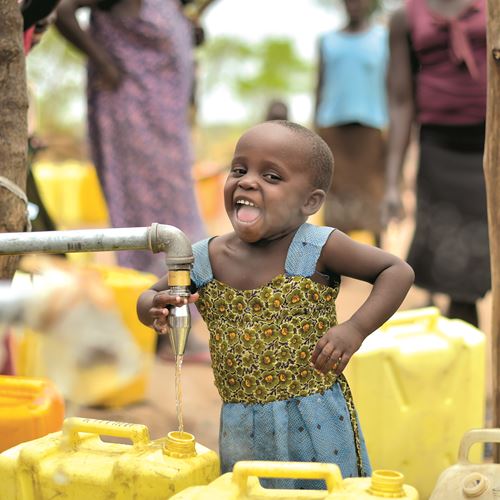
Displacement trends
Source: | UNHCR
Displacement Trends
Definitions
EDPs: Refugees under UNHCR’s mandate
IDPs: Internally displaced persons
Asylum seekers: People whose claims for refugee status have not yet been determined
Stateless: People not considered as nationals by any State
HST: People living in Host Communities
OIP: Others in need of International Protection
OOC: Others of Concern
Forecast
DRC forecasts are based on a machine learning tool that has been developed to predict forced displacement (IDPs, refugees and asylum seekers) at the national level 1-3 years into the future.
Why we are there
DRC contributes to the efforts of the Government of Uganda’s Office of the Prime Minister, UNHCR and the wider NGO community to support refugees both immediately upon their arrival, and later towards achieving longer-term solutions.
In alignment with DRC’s response framework, the country portfolio and strategy are characterised by emergency response, solutions to displacement and addressing root causes programming.
DRC Uganda’s programming contributes to Uganda’s refugee response plans for South Sudan and the Democratic Republic of Congo, which seeks “to meet humanitarian needs” while also serving “as a transition towards sustainable refugee response programming.”
DRC’s programming equally contributes to the Government of Uganda’s Third National Development Plan, which aspires towards “secure, self-reliant and resilient refugee and host community households in refugee hosting districts with a goal of ensuring refugees and host communities are socially, economically and financially included in a sustainable manner in local development.”
What we do
DRC Uganda continues to play a key role in the provision of protection services, working to improve protection of the hard-to-reach and expanding access to legal aid. DRC is currently UNHCR’s implementing partner for protection in Imvepi, Kiryandongo, Lobule and Rhino Camp settlements, where collectively over 275,000 refugees reside. Within these settlements, DRC supports community-based protection and provides child protection, legal aid and gender-based violence prevention and response services.
DRC’s works closely with the national NGOs Humanitarian and Development Services (HADS) as well as the Uganda Law Society (ULS) as part of the organization’s commitment to localization.
Contributing to the Grand Bargain commitments, DRC Uganda is an advocate and implementer of cash assistance programming, actively participating in the Uganda Cash Working Group and Uganda Collaborative Cash Delivery network.
As lead of the ECHO-funded Uganda Cash Consortium, DRC collaborates with the Lutheran World Federation and the Uganda Red Cross Society to provide cash assistance, including cash for education, across the majority of refugee settlements.
DRC promotes financial inclusion and the use of digital cash assistance through both traditional financial services providers and, increasingly, through collaboration with financial technology initiatives.
DRC Uganda has also contributed to the economic recovery and initiatives to enhance market access and climate resilience through programming supporting rural community development, water resource management, household-level permaculture and livelihoods.
One of DRC Uganda’s flagship programmes, the Danida-funded Northern Uganda Resilience Initiative (NURI), collaborates with local government and communities to implement much-needed infrastructure that enhances access to markets and essential services for agricultural-based communities through environmentally sensitive and regenerative approaches.
With financial support from the International Water Management Institute, DRC Uganda is contributing to greening the settlements and improving household food security and nutritional diversity through permaculture and resource-recovery activities.
Working in collaboration with


BPRM (US Bureau of Population, Refugees, and Migration)

UNHCR

Danish Ministry of Foreign Affairs

Contact
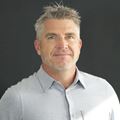
James
Curtis
Executive Director East Africa & Great Lakes
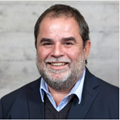
Samuele
Otim Rizzo
Country Director
